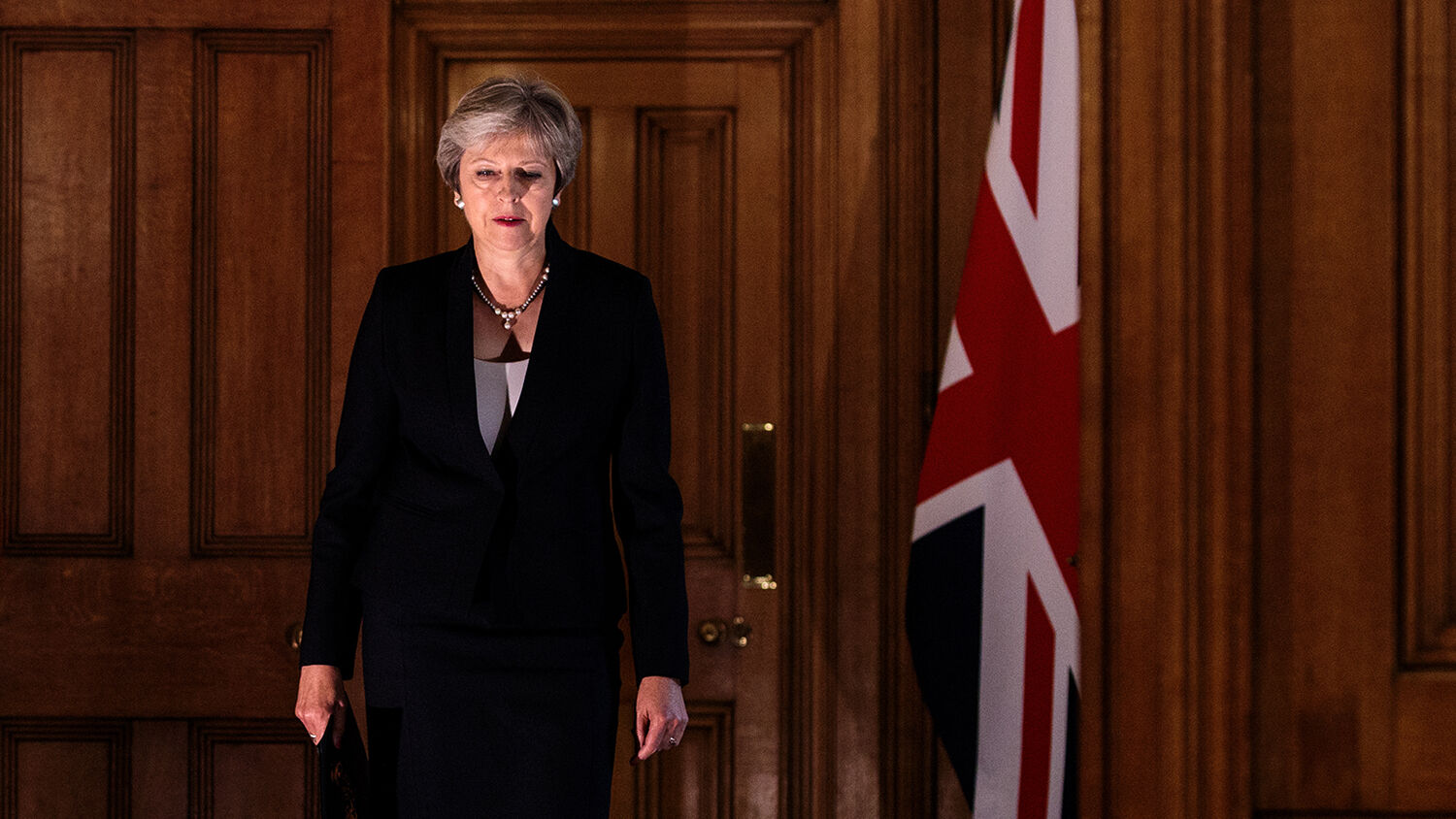
Brexit Day of Reckoning Nears
Britain is drawing ever closer to leaving the European Union without it and the EU agreeing to any kind of deal. This will be a big week for Brexit.
Britain’s Brexit minister visited the EU on Sunday to try to patch something together, but nothing came of it. The big day will be Wednesday, when the leaders of the other 27 EU nations will meet for what has been called a “moment of truth” for Brexit. But the whole week will be busy. Agence France-Presse wrote:
Sunday’s flurry of activity came as May prepared to face what one newspaper cartoon dubbed “hell week.”
On Tuesday, she will rake over the Irish border issue with her cabinet, amid speculation that more ministers could resign if she plows on with her proposals. …
Then on Wednesday, May goes to Brussels, still facing the issue of the border between Northern Ireland and the Irish Republic.
Neither London, Dublin nor Brussels wants to see checks imposed on the border, but the problem persists of finding a way to square that aim with Britain’s decision to leave the European single market and the customs union.
Ms. May wants to find something that will satisfy the EU, the anti-EU parts of her party, and her coalition partners from Northern Ireland, the Democratic Unionist Party. That may not be possible, so her leadership is on shaky ground. The Democratic Unionists could quit her coalition. If just four more Conservative M.P.s write a letter saying they want a new leader, it will bring about a vote on the subject. With all this, many wonder if Ms. May can survive “hell week.”
“Of course Theresa May has found herself in very challenging situations before but with the prime minister all out of Brexit fudge, the next few days could be her most difficult yet,” wrote Kay Balls at the Spectator. “If events escalate and tempers flare, a confidence vote cannot be ruled out.”
None of this is to say that Brexit was a mistake and that the UK desperately needs a deal. The nonpartisan think tank Open Europe published a report today concluding that in the medium term, quitting the EU without some kind of deal in place would have only a “relatively small” effect on the country’s economy.
But it does show the tenuous leadership and divided politics afflicting the country at this crucial time. The ruling Conservatives lack a strong leader and can’t agree on anything. And waiting in the wings is Jeremy Corbyn and his band of Marxists, who would quickly ruin the country—economically and otherwise. I wrote over the summer:
Britain’s EU membership was not the root cause of the country’s problems.
“Britain is going to look back on Monday, Jan. 1, 1973, in all probability, as a most tragically historic date—a date fraught with ominous potentialities!” wrote Herbert W. Armstrong that same year. “For that date marked the United Kingdom’s entry into the European Community.”
He went on to describe how the EU would unite politically. For Britain this would be a “tragic situation” because it would be no part of this kind of superstate. …
But why join such a bad relationship in the first place? Many of Britain’s top leaders deceived the public about the EU’s true nature to get them to agree to enter the Union. They insisted it was merely a trade relationship—even though they knew it also involved more and more financial, political and even military unity.
Britain went in because we lacked self-confidence. We lacked leadership. We lacked a vision of what the nation’s role should be. We lacked willpower and imagination. Charting your own course in the world is hard. Following the rest of the Continent is easy.
Those same weaknesses still exist. Brexit hasn’t magically transformed the nation into a strong united people. The nation lacks leaders, direction and purpose—so even the Brexit negotiations have been rudderless, directionless and divided.
These weaknesses are all prophesied in the Bible. You can read more about them in Brad Macdonald’s article “Brexit Exposes UK’s Many Infirmities.”
